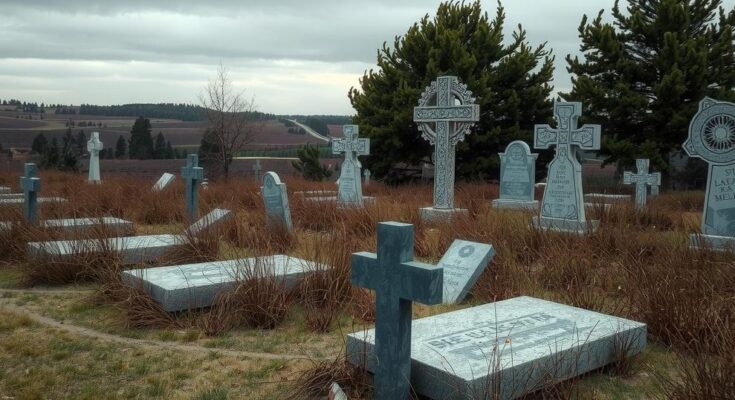The Iranian government has been criticized by the United Nations for its denial of the desecration of Baha’i cemeteries and the treatment of the Baha’i community. Special Rapporteur Professor Nazila Ghanea addressed the issue during the UN Human Rights Council session, highlighting systemic violations against Baha’is. The situation has involved forced burials, cemetery destruction, and a broader campaign of persecution against this minority group.
The United Nations has criticized Iran’s government for its blatant denial of the ongoing desecration of Baha’i cemeteries. During a recent Human Rights Council session, Special Rapporteur Professor Nazila Ghanea emphasized that the Islamic Republic cannot disguise its violations regarding the Baha’is’ right to bury their deceased loved ones. A representative from Iran denied the findings presented in the Special Rapporteur’s report, which noted significant obstacles faced by the Baha’i community regarding burials.
The Iranian official aimed to mislead by asserting that cemetery land regulations in Iran promote equitable access, despite contrary evidence suggesting systemic discrimination against the Baha’is. Professor Ghanea countered this narrative by highlighting the broader context of persecution religious minorities endure in Iran, underscoring that state obligations cannot be overlooked. She stated, “Hundreds of Baha’i cemeteries throughout Iran have been destroyed, burnt, and bulldozed over decades.”
Former Special Rapporteur Heiner Bielefeldt had previously characterized the Baha’is’ persecution in Iran as a pervasive issue, persisting from cradle to grave. Simin Fahandej from the Baha’i International Community highlighted that Iranian Baha’is are not only denied a peaceful existence but also struggle to bury their dead with dignity. “Any human being with a conscience would at least allow the dignity of the dead to remain,” Fahandej remarked.
In the last year alone, numerous Baha’i cemeteries across 14 Iranian cities have faced destruction or interference by government authorities. Agents have taken control of cemetery management, imposed fees for burials, and, at times, forcibly conducted burials against families’ wishes. The cities affected include Tehran, Karaj, Shiraz, and others.
Canada has also expressed concern regarding the treatment of Iranian Baha’is, affirming that their burial rights need protection. For 46 years since the Islamic Revolution, Baha’is in Iran have experienced significant violations concerning cemetery rights, including forcibly managed burials in mass graves without family consent.
The Iranian government’s systematic persecution of the Baha’i community is rooted in a 1991 policy titled “The Baha’i Question,” which outlined strategies to obstruct the community’s progress and restrict their rights. Baha’is are subjected to various abuses, including arbitrary detentions and physical violence. The Baha’i International Community urges the global community to champion human rights and hold Iran accountable for its violations.
In conclusion, Iran’s government has faced condemnation for its systematic violations of the Baha’is’ rights to peace and proper burial practices. Key voices, including those from the United Nations and Canada, have highlighted the persecution that the Baha’i community endures. The dire circumstances faced by Baha’is in Iran, which include cemetery desecrations and restrictive policies, underscore the urgent need for international intervention and accountability.
Original Source: iranpresswatch.org




